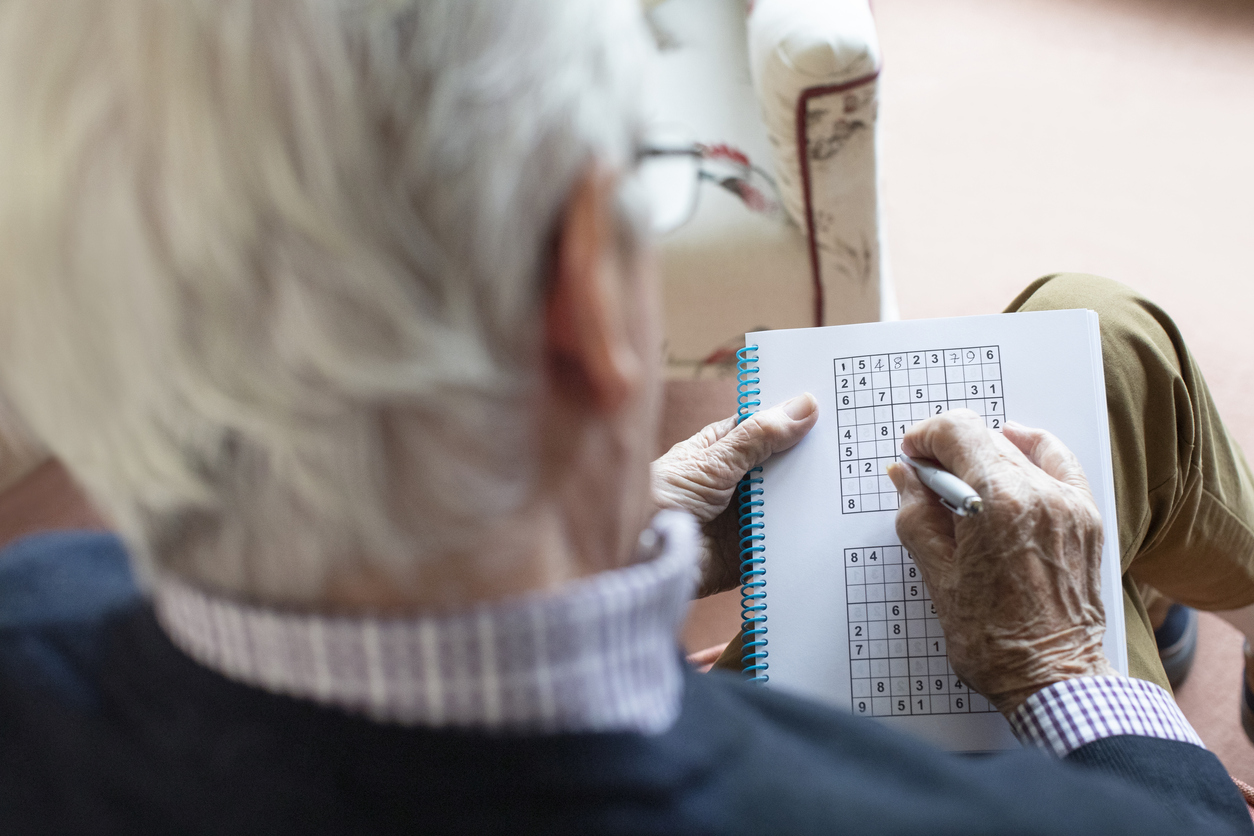Brain Gain: How to Stay Sharp as You Age

Brain Gain: How to Stay Sharp as You Age
Looking for ways to keep your mind sharp as you age? Well, put on your thinking cap: researchers have found that training our brains with cognitive exercises can improve our mental processes.
Just as regular workouts keep our bodies in shape, consistent cognitive training – for at least 20 minutes, three times per week – can help preserve our attention, memory, visual-spatial ability and executive function (planning, organizing, problem-solving and decision-making). What’s more, combining physical and cognitive exercise can be especially effective, and you’ll get the benefits of both.
Help for the aging brain
As we get older, our brains change, and so do our thinking and memory capabilities. Age-related cognitive changes are normal and common, and it’s not all negative: while certain abilities may decline – such as recalling information and committing new information to memory – others can actually improve, including the abilities to make rational decisions and to find connections between different pieces of information.
Over time, you might find that you misplace items more often, or that you sometimes need to search your memory to find the right word. Training your brain can help improve how it functions. (Note: while occasional forgetfulness is normal, symptoms of Alzheimer’s disease and other types of dementia are not. If you experience more significant issues – such as using the wrong words, reacting slowly or forgetting how to do daily tasks – speak to your physician. Dementia has many causes, including treatable conditions, and early detection and intervention are beneficial.)
How to train your brain
If you enjoy doing puzzles such as crosswords and Sudoku, keep it up: in 2019, a large study by the University of Exeter found that the more regularly adults aged 50-plus do puzzles, the better their brain function, including attention, memory and reasoning. Word puzzlers had brain function equivalent to people 10 years younger.
If you want to branch out (or you don’t like puzzles), try activities that engage your body as well as your brain. According to aging experts at McMaster University, combining strength training or aerobic exercise with brain training may be more effective than brain training alone, for older adults with or without mild cognitive impairment.
Here’s some inspiration for things that include learning and doing. (Before you start, consult your physician to make sure they’re safe for you.)
- Dancing: It’s time to put your dancing shoes on. We previously shared the benefits of dancing for your physical, mental and cognitive health. Turn up the music and bust a move, alone or with a partner!
- Tai chi: Tai chi (pronounced “tie chee”) is a gentle, slow-paced and non-competitive practice that involves stretching and standing postures. It is so graceful that many people describe it as “meditation in motion.” Tai chi is a low-impact form of exercise, so it’s safe for most ages and fitness levels – and it’s fun to learn in a group (when it’s safe to do so). Benefits of tai chi include improved balance, flexibility, strength and agility, and studies have found that doing tai chi can improve executive function in healthy older adults, and cognitive function in those with cognitive impairment.
- Video gaming: Research has found that video games can enhance cognitive abilities including attention, memory and visual-spatial skills. Fitness video games offer those benefits plus a fun cardio workout. Nintendo paved the way with its innovative Wii Fit platform, but you can also find exciting fitness games – including virtual sports and dancing – for Nintendo Switch, Sony PlayStation, Microsoft Xbox and desktop computers. Some games may require additional gear, such as a virtual reality headset or hand-held devices. Visit a video game store – or ask the kids and teens in your family!
More things you can do to protect your brain:
- Exercise regularly. In addition to the brain benefits mentioned above, staying active is good for your physical and mental well-being. It can lower your risk of disease, reduce anxiety and improve sleep quality. Exercise outdoors for additional health benefits.
- Maintain a healthy weight. Excess body weight increases your risk of health problems including diabetes, high blood pressure, heart disease and certain types of cancer. Obesity is a risk factor for dementia.
- Manage your blood pressure. High blood pressure, or hypertension, is the top risk factor for stroke and a major risk factor for heart disease.
- Quit smoking. Smoking increases your risk of dementia, heart disease, cancer and other serious health conditions.
- Keep learning for life. Learning new things helps you stay sharp – plus it’s a lot of fun. Try our suggestions for seniors.
- Prevent brain injuries. Keep your home clear of tripping hazards indoors and out, use a seatbelt in vehicles, and wear a helmet while riding your bike.
How will you train your brain today?
